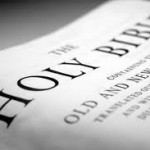[Guest post from ActivistFaith.org co-founder Daniel Darling. Thanks, Daniel! You may also want to check out his new book iFaith, which just received a stellar review from Publisher’s Weekly.]

Today I have the privilege of chatting with Jonathan Merrit. I’ve been
following the work of Jonathan in the last couple years as God has given
him a platform to speak and write on subjects relevant to a younger
generation of evangelicals. Southern Baptists will know Jonathan as the
son of Dr. James Merritt, a past President of the Southern Baptist Convention and a reknowned pastor and teacher.
Jonathan is a thoughtful writer, speaking on the intersection of orthodox Christian faith and culture. He is author of Green Like God: Unlocking the Divine Plan for Our Planet (2010), which Publisher’s Weekly
called “a must-read for churchgoers,” offers a biblical justification
for care of creation. His work has appeared in respected outlets such
as USA Today, The Atlanta Journal-Constitution, The Washington Post’s “On Faith,” BeliefNet, Christianity Today, and CNN.com. Jonathan is also the editor of Q.
1) You’ve written the book, Green Like God. How do you frame the Christian case for stewardship of the environment?
I root the entire discussion in the context of the scriptures. While I
believe tradition and experience are important-and I reference them in
the book-I lean on scripture most heavily. The book begins with a
rediscovery of God’s word and then moves to reevaluating God’s world. I
believe a proper approach to creation care must go through these two
steps in that order.
2) Evangelicals have often been skeptical of
environmentalism, because of the excesses of the movement and what some
perceive as worship of the earth, but that shouldn’t mean we swing
wildly the other way, either, right?
So much of religion is pendulumatic. That’s not what I promote in
this book. I want a balanced and reasonable approach to creation care
that asserts timeless principles. In fact, I devote an entire chapter
toward the beginning to the dangers of faddish pop-environmentalism.
3) It seems today as if there are two trends among younger
evangelicals. We seem to want more robust preaching, less of the “hip”
church and yet we are also more solution-oriented, rather than the
knee-jerk confrontational conservatism when it comes to politics. Why is
that?
The shifts going on among younger evangelicals seems to be both reactive
and proactive. On the one hand, it is a reaction to the failures of the
last generation of American Christianity. On the other hand, it is
proactive in that it is rooted not in rebellion but in reflection. There
are new perspectives on scripture, culture, and gospel, for example,
that are rising to the surface and pushing Christians into a new moment
for the faith.
4) There seems to be an awakening in the church to issues
like human trafficking, orphan care, and other issues to broaden, but
not replace the usual conservative political portfolio.
That’s correct. There is an awakening to what is often called a “broader
agenda” for the reasons mentioned above. And the young evangelicals are
embracing this broader agenda while not abandoning traditionally
Christian issues. This comes, of course, with one glaring exception.
Every data point indicates that young Christians are shifting on the
issues of same sex unions.
5) You have said, “I think we need to throw the hush off of
the hidden things and blow the dust off the subjects we’ve stored in the
attics of our minds.” Why have we not had those conversations in the
past?
There are always conversations that must be had that we aren’t currently
having. And those conversations will be different tomorrow than they
are today. As each era dawns, it brings with it unique challenges and
problems requiring the attention of Christ followers. It isn’t that we
haven’t been willing to have the tough conversations in the past and I
am the only one brave enough to tackle them. Rather, I see my personal
calling as something of a cultural observer to identify and address
difficult pressing issues as they arise. Creation care is just one of
those issues, and I did my best to address it in a way that was faithful
to the Bible and honest with the facts.
+++
BURROUGHS is an author, activist, and co-founder of Activist Faith.
Dillon served in Haiti following the epic 2010 earthquake and has
investigated modern slavery in the US and internationally. His books
include Undefending Christianity, Not in My Town (with Charles J.
Powell), and Thirst No More (October 2011). Discover more at
DillonBurroughs.org.

